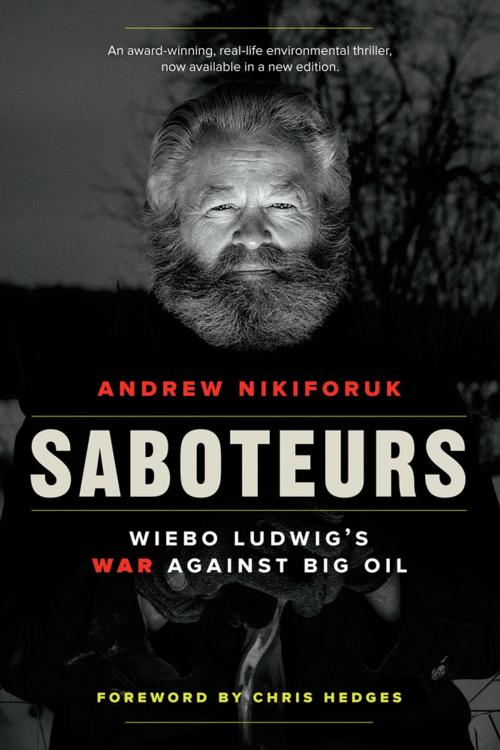Saboteurs
Weibo Ludwig`s War against Big Oil
Nonfiction, Social & Cultural Studies, Political Science, Politics, Civil Rights, Biography & Memoir, Political| Author: | Andrew Nikiforuk | ISBN: | 9781771640831 |
| Publisher: | Greystone Books Ltd. | Publication: | September 13, 2014 |
| Imprint: | Greystone Books | Language: | English |
| Author: | Andrew Nikiforuk |
| ISBN: | 9781771640831 |
| Publisher: | Greystone Books Ltd. |
| Publication: | September 13, 2014 |
| Imprint: | Greystone Books |
| Language: | English |
Winner of the Governor General’s Award for Literary Non-Fiction and the 2002 Crime Writers of Canada Arthur Ellis Award for Best True Crime
“A grisly catalogue of the effects of hydrogen sulphide and flaring . . . Nikiforuk provides an eloquent and persuasive voice for all downwinders.” —The Globe and Mail
In 1990, religious-community leader Wiebo Ludwig learned the hard way that land ownership doesn’t include mineral rights. A Calgary oil company proposed to drill directly in view of the farm’s communal dining room. Ludwig wrote letters, petitioned, and forced public hearings—and discovered the provincial regulator cared little about landowners. After the oil company accidentally vented raw sour gas, Ludwig’s wife miscarried. Saboteurs details the ensuing conflict, which involved the oil company, police, and the larger community. Hostilities began with nails on the roads, sabotaged well sites, and road blockades. They culminated in death threats, shootings, and bombings.
With the escalation of hydraulic fracturing for extreme hydrocarbons, the questions raised by Saboteurs about individual rights, corporate power and government accountability are more relevant than ever.
Winner of the Governor General’s Award for Literary Non-Fiction and the 2002 Crime Writers of Canada Arthur Ellis Award for Best True Crime
“A grisly catalogue of the effects of hydrogen sulphide and flaring . . . Nikiforuk provides an eloquent and persuasive voice for all downwinders.” —The Globe and Mail
In 1990, religious-community leader Wiebo Ludwig learned the hard way that land ownership doesn’t include mineral rights. A Calgary oil company proposed to drill directly in view of the farm’s communal dining room. Ludwig wrote letters, petitioned, and forced public hearings—and discovered the provincial regulator cared little about landowners. After the oil company accidentally vented raw sour gas, Ludwig’s wife miscarried. Saboteurs details the ensuing conflict, which involved the oil company, police, and the larger community. Hostilities began with nails on the roads, sabotaged well sites, and road blockades. They culminated in death threats, shootings, and bombings.
With the escalation of hydraulic fracturing for extreme hydrocarbons, the questions raised by Saboteurs about individual rights, corporate power and government accountability are more relevant than ever.















